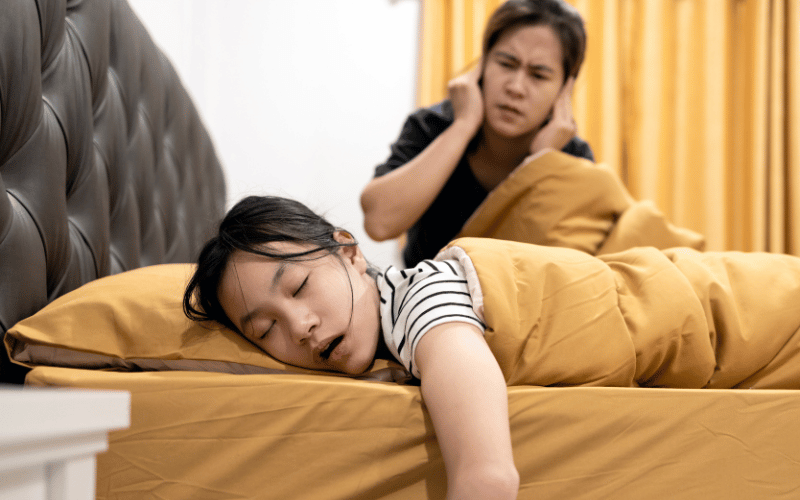Introduction: The Alarm Bells You Can’t Afford to Ignore

Let’s face it, parenting is a non-stop learning experience. And one of the most perplexing challenges? Understanding why your child might not be getting the restful sleep they need. It’s tempting to brush off certain signs as “just a phase” or perhaps related to some other minor health issue. But what if the root cause is sleep apnea? That’s right—sleep apnea, a condition often associated with adults, can also plague our younger ones.
The stakes are high. This sleep disorder can impact not just nighttime peace but also a child’s overall health and well-being. While daytime sleepiness and a grumpy mood might seem like typical “kid behavior,” these could be glaring red flags. Parents, caregivers, or anyone involved in a child’s life can’t afford to be in the dark when it comes to sleep apnea. You see, sleep is as crucial to a child’s development as a balanced diet and regular exercise.
To separate the facts from folklore, we’ve put together a no-nonsense list of symptoms that scream sleep apnea. This isn’t your run-of-the-mill, fear-inducing article; it’s a fact-based analysis of the top 10 symptoms you should be vigilant about. We dive deep into each symptom, offering clear, actionable advice for concerned parents. Whether your child is a toddler or a teenager, knowledge is the first step in dealing with this sleep-disrupting monster.
So, grab a cup of coffee or tea, and let’s get into it. This article aims to serve as a wake-up call for all parents. It’s time to demystify sleep apnea in children, and this guide is where you’ll learn how to spot the symptoms that matter. With expert advice and scientifically-backed information, you’ll be equipped to make informed decisions for your child’s health. After all, peace of mind starts with understanding what you’re up against.
1. Snoring: The Symphony No Parent Wants to Hear

While the sound of a child snoring might evoke the idea of deep sleep, this is a misconception that can be misleading. Snoring is often a sign that your child is struggling to maintain a clear airway during sleep. It isn’t merely an annoyance; it disrupts the sleep cycle, causing your child to move between stages of sleep rather than progressing naturally through them.
Imagine a narrow pathway, congested and almost blocked. This is what happens in the airway of a child with sleep apnea. As your child struggles to inhale and exhale smoothly, snoring becomes the background music of this struggle. The sound can be soft or piercingly loud, but the point is that it’s not normal and can be an indicator of a bigger problem.
Contrary to popular belief, snoring is not exclusive to adults. Sure, we’ve seen grandpa nap on the couch, snoring away, but when your little one does it, it’s time to zoom in on their overall health. Snoring can lead to poor oxygen supply to the brain, affecting cognitive development and performance in activities such as schoolwork.
The level of seriousness can vary. In mild cases, snoring may occur due to a seasonal allergy or a common cold. However, consistent and loud snoring accompanied by other symptoms we’ll discuss later often points to sleep apnea. (1)